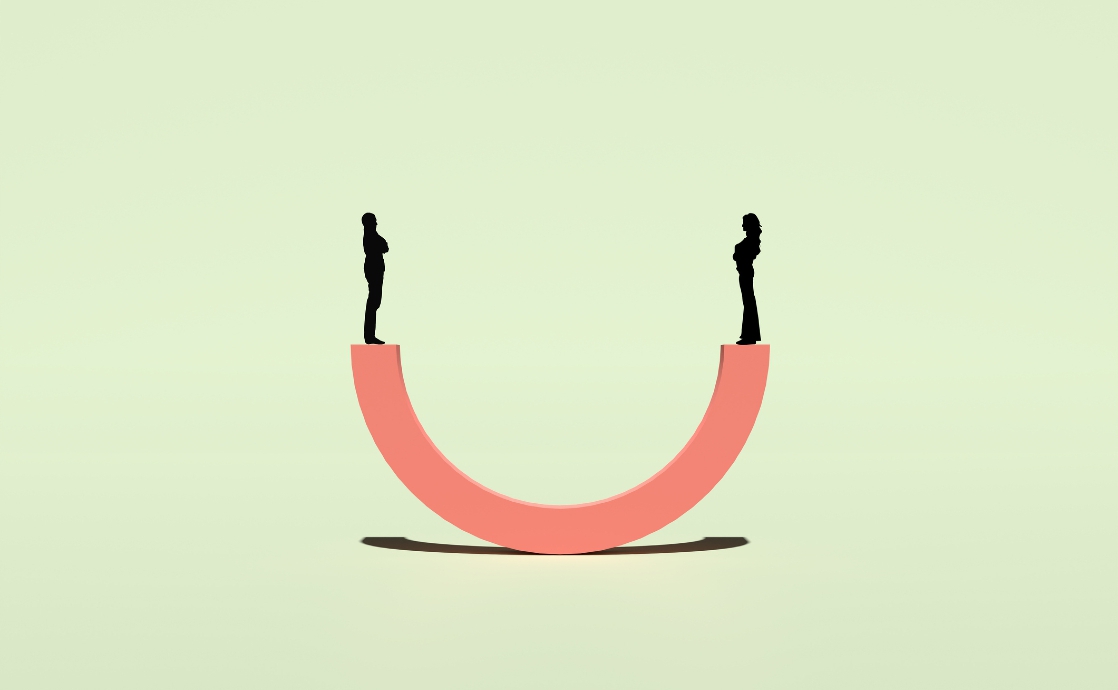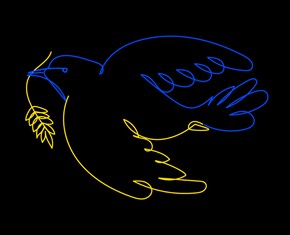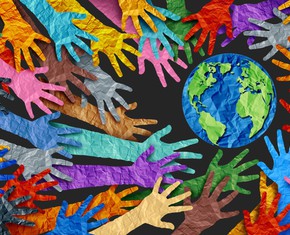The views expressed in our content reflect individual perspectives and do not represent the authoritative views of the Baha'i Faith.
The extreme injustice of gender inequality has plagued humanity forever. Up until recent times, men have ruled much of the world – and have ruled over women, too.
Largely because of their larger physical bodies and the strength of those bodies, and because women in the past had little access to education, paid work, or financial independence, men have dominated governments, power structures, and family units for thousands of years. That’s how the now-offensive term “the weaker sex” originally came into wide use as the title of many books, plays, and films.
RELATED: Examining the Unique Spiritual Qualities of Women
But a few centuries ago, things began to gradually change. In a major development for the emancipation of women from the old “weaker sex” role, the Baha’i Faith began, with its visionary principles of the oneness of humanity and the equality of the sexes:
In this Revelation of Baha’u’llah, the women go neck and neck with the men … Rest ye assured! Ere long the days shall come when the men addressing the women, shall say: “Blessed are ye! Blessed are ye! Verily ye are worthy of every gift. Verily ye deserve to adorn your heads with the crown of everlasting glory, because in sciences and arts, in virtues and perfections ye shall become equal to man, and as regards tenderness of heart and the abundance of mercy and sympathy ye are superior.”
Slowly, progress has occurred. Women won the right to own property, to be educated, to vote. Many societies began to alleviate the systematic oppression of women as the “weaker sex,” as this quote from Mahatma Gandhi illustrates:
To call woman the weaker sex is a libel; it is man’s injustice to woman. If by strength is meant brute strength, then, indeed, is woman less brute than man. If by strength is meant moral power, then woman is immeasurably man’s superior. Has she not greater intuition, is she not more self-sacrificing, has she not greater powers of endurance, has she not greater courage? Without her, man could not be. If nonviolence is the law of our being, the future is with woman. Who can make a more effective appeal to the heart than woman?
RELATED: The World of Humanity Has Two Wings: Women and Men
As physical size and strength have decreased in overall importance across the world, and mental abilities have increased in importance, the status of women has risen. Women now run countries, multinational corporations, and NGOs. Their roles in just about every aspect of life have accelerated in significance, intensity, and impact, and will continue to do so. Today more powerful, educated, intellectually formidable women exist than at any other time in history.
That makes some men nervous.
It also means that parents face a new, never-before-encountered challenge — how to equitably bring up their children. How do we raise girls and boys to respect each other? What new gender roles do we teach – or should we fall back on the old, comfortable, socially-prescribed roles? Is femininity inherently weak? Is masculinity always strong? Can girls grow up to be the president? If so, what does that mean for boys? What role do boys — and men – have in this new, different world? Every parent now seeks answers to these gender-role questions, so important for how children see themselves in the world today; and every parent also has to deal with the strong gender expectations their culture foists upon their children.
Since my wife and I have three sons and one daughter, all of them now adults, we have some real-world experience with this issue. In raising our sons we had to offer, during the period of their boyhoods, a frame of reference for the kinds of characters, personality traits, and spiritual qualities we wanted them to develop.
Above all, we had to figure out how to raise boys so that they would become good, kind men.
I’m still fascinated and heartened by how they turned out, given the values and ideals we tried to teach them. We raised them as Baha’is, and they made their own decisions about their spiritual lives when they came of age, like all Baha’is do. Regardless of their individual decisions about their individual spiritual paths, though, they — and hopefully most of the men of their entire generation – will definitely exemplify a version of maleness for their sons and grandsons vastly different than the one I inherited from my father and grandfather.
To raise gentle men, we had to figure out ways to alter the old rules of how to be a man. You know the ones – an insistent emphasis on toughness, aggression, emotional repression, and regarding women as the “weaker sex.” In the process, we learned that even little boys want to act tough, especially when the male culture around us teaches them to disdain sensitivity. This insight, from Geoffrey Canada, the CEO of Harlem Children’s Zone, describes that plight:
Boys are really desperate to understand how to become men. And they often are taught by their peers and older boys that there are certain things that will prevent you from becoming a man. These things are associated with what boys would define as soft and some of us would define as kind and caring. We have to help boys understand that growing into a man is not something that your actions or your beliefs can prevent from happening.
From a Baha’i perspective, the raising of boys into manhood (and girls into womanhood) involves teaching, modeling, inculcating, and practicing altruism – learning to prioritize the needs of others over the needs of the insistent self.
RELATED: Women’s Equality: Baha’i Principle and Prophecy
Traditionally, parents only taught girls these caring and giving skills – but today they’re equally important for boys to learn and develop. This fundamental Baha’i ideal says that the highest and best expression of masculinity calls for developing the essentially spiritual virtues of fairness, justice, mercy, and kindness, as Abdu’l-Baha said in this speech he gave in America in 1912:
If man were to care for himself only he would be nothing but an animal for only the animals are thus egoistic. If you bring a thousand sheep to a well to kill nine hundred and ninety-nine the one remaining sheep would go on grazing, not thinking of the others and worrying not at all about the lost, never bothering that its own kind had passed away, or had perished or been killed. To look after one’s self only is therefore an animal propensity. It is the animal propensity to live solitary and alone. It is the animal proclivity to look after one’s own comfort. But man was created to be a man – to be fair, to be just, to be merciful, to be kind to all his species, never to be willing that he himself be well off while others are in misery and distress – this is an attribute of the animal and not of man. Nay, rather, man should be willing to accept hardships for himself in order that others may enjoy wealth; he should enjoy trouble for himself that others may enjoy happiness and well-being. This is the attribute of man. This is becoming of man. Otherwise man is not man – he is less than the animal.
Each child, once they learn about altruism and selflessness as the vitally important secrets to human happiness, can fit more comfortably and naturally into their role as an adult, regardless of their gender.
















Comments
Sign in or create an account
Continue with Googleor